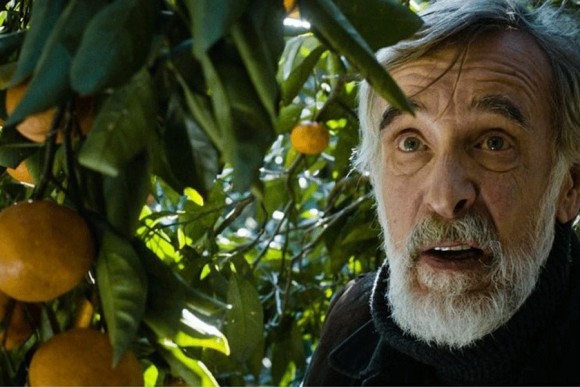A new generation of filmmakers is emerging. Important filmmakers such as Otar Iosseliani and Mohsen Makhmalbaf shot their new films in Georgia. The agreement signed by Georgia and Creative Europe is an important step and the launch by the Georgian National Film Centre of a coproduction grants scheme in 2010 is expected to boost the number of international projects. However, film funding is still scarce and the number of screens still low.
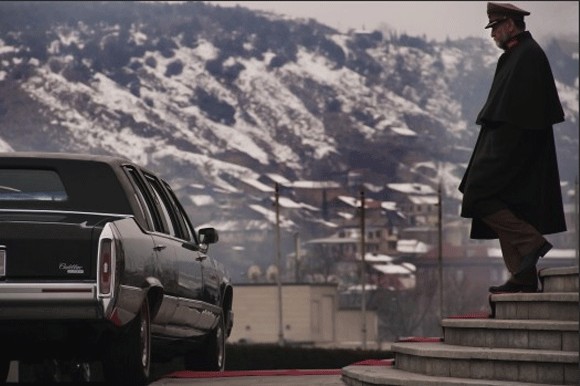 PRODUCTION
PRODUCTION
A total of 16 films were produced in Georgia in 2013 and 2014. Among them The President by Mohsen Makhmalbaf, a Georgian (20 Steps), French, UK and German coproduction which premiered in Venice, and Winter Song/Chant d'hiver (working title) by Otar Iosseliani, shot in Georgia in October 2014, coproduced by Georgia's Studio 99 together with France's Pastorale Films. While Iosseliani’s film is backed up by the Georgian Ministry of Culture, most of the features are supported by the GNFC.
Producer Vladimer Katcharava from 20 Steps points out the advantages and the disadvantages of shooting in Georgia: “It’s a film friendly country. Everyone from ordinary people to governmental structures try to help, it’s cheap to shoot there and still get good quality, and there are good locations. However, our main problem is that the industry is very small and it’s unable to have two films shooting at the same time.”
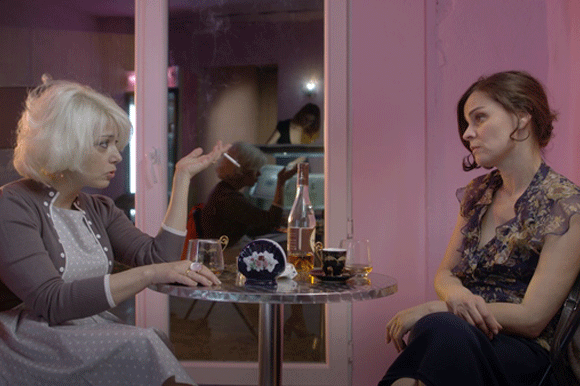 Several features were shot and finished in 2014 including Rusudan Pirveli‘s Sleeping Lessons/Dzilisgakvetilebi (produced by LTD Caucasian Filmodrom), House of Others by Rusudan Glurjidze (Cinetech Film Production), Nutsa Alexi-Meskhishvili‘s Line of Credit/Kreditislimiti (Georgia’s 3003 Film Production, France, Germany), and the portmanteau film Tbilisi – I Love You/Tbiliso, me shen miqvarkhar, directed by Nika Agiashvili, Irakli Chkhikvadze, Levan Ghlonti, Alexander Kviria, Tako Shavgulidze, Levan Tutberidze, Kote Takaishvil, and produced by Storyman Pictures Credo and Cinema Ever So Close.
Several features were shot and finished in 2014 including Rusudan Pirveli‘s Sleeping Lessons/Dzilisgakvetilebi (produced by LTD Caucasian Filmodrom), House of Others by Rusudan Glurjidze (Cinetech Film Production), Nutsa Alexi-Meskhishvili‘s Line of Credit/Kreditislimiti (Georgia’s 3003 Film Production, France, Germany), and the portmanteau film Tbilisi – I Love You/Tbiliso, me shen miqvarkhar, directed by Nika Agiashvili, Irakli Chkhikvadze, Levan Ghlonti, Alexander Kviria, Tako Shavgulidze, Levan Tutberidze, Kote Takaishvil, and produced by Storyman Pictures Credo and Cinema Ever So Close.
The list of new documentaries include Zurab Inashvili’s Another City/Skhvakalaki (The Author‘s Film Studio), Levan Adamia‘s Giorgobistve – The Third Cathegory/ Giorgobistve- mesamekategoria (Georgian Public Broadcaster and Documentary Film Studio), and Ana Tsimintia‘s Biblioteka (Georgia’s Match House Films and Lithuania’s Anaben Films).
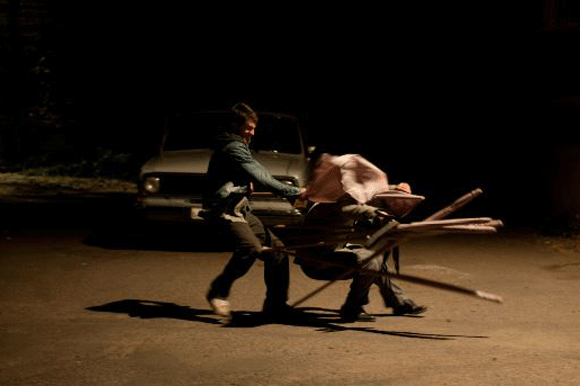 Among the seven features shot in 2013 are Levan Koguashvili’s debut features Blind Dates (Kino Iberica and Millimeter Film), Olena Fetisova’s Ukrainian/French/Georgian coproduction Parajanov (produced from Georgia by Gemini Producing Center), Zaza Urushadze’s Estonian/Georgian coproduction Tangerines, Zaza Rusadze‘s A Fold in My Blanket/Chemisabnisnaketsi (Zazarfilm), Tinatin Kajrishvili‘s Brides/Patarzdlebi (Georgia’s Gemini in coproduction with Georgia’s Millimeter Film and France’s Ad Astra Films). The black comedy Epic, written by Pawel Pawlikovski and Ben Hopkins and directed by Hopkins, a Georgian-British-Russian coproduction with Ltd 20 Steps Production, as the main producer and I am Beso by Giorgi Tskvitinidze (LTD Pansionati) were both shot in 2013.
Among the seven features shot in 2013 are Levan Koguashvili’s debut features Blind Dates (Kino Iberica and Millimeter Film), Olena Fetisova’s Ukrainian/French/Georgian coproduction Parajanov (produced from Georgia by Gemini Producing Center), Zaza Urushadze’s Estonian/Georgian coproduction Tangerines, Zaza Rusadze‘s A Fold in My Blanket/Chemisabnisnaketsi (Zazarfilm), Tinatin Kajrishvili‘s Brides/Patarzdlebi (Georgia’s Gemini in coproduction with Georgia’s Millimeter Film and France’s Ad Astra Films). The black comedy Epic, written by Pawel Pawlikovski and Ben Hopkins and directed by Hopkins, a Georgian-British-Russian coproduction with Ltd 20 Steps Production, as the main producer and I am Beso by Giorgi Tskvitinidze (LTD Pansionati) were both shot in 2013.
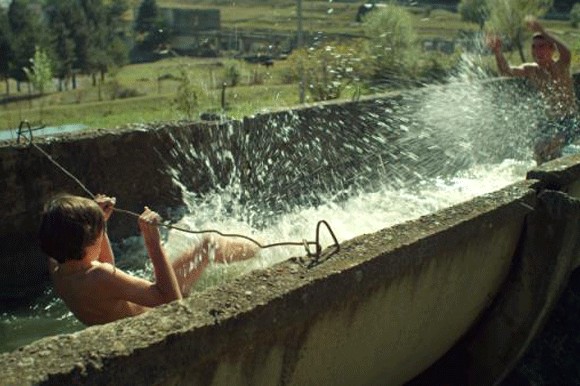 The Georgian-French-German-Czech-Kazhak coproduction Corn Island by George Ovashvili (Alamdary Films, Axman Production) started production in 2013 and it was finished in 2014.
The Georgian-French-German-Czech-Kazhak coproduction Corn Island by George Ovashvili (Alamdary Films, Axman Production) started production in 2013 and it was finished in 2014.
Eight foreign films, mostly coproductions, were shot in Georgia between November 2012 and November 2013. A cash rebate plan is still in discussion. Approximately 50% of the domestic films produced during a year are coproductions. The average budget for a feature film is 360,000 EUR/850,000 GEL.
Michel Hazanavicius’s The Search (produced by the American company Worldview Entertainment and French La petite reine and France 3) was shot under the radar in Georgia starting at the end of August 2013, with the Georgian company Sarke as local partner. Jacky in the Kingdom of Women/ Jacky au royaume des filles by Riad Sattouf, coproduced by Georgian International Films was also shot in 2013.
In February 2014 GNFC announced the first joint public-private partnership in film funding, with TBC Bank for the financing of documentary and short film projects on a competitive basis.
In 2014 GNFC announced 2015 production contests in five categories with the results to be announced throughout 2014.
In March 2014 GNFC launched a grants contest for documentaries with approximately 82,800 EUR at stake.
Questioned about the importance of the international coproductions, Nana Janelidze, the head of GNFC said: “If you want to be a member of Europe and of the film industry, you need to be in this blood circulation. We are giving something and we are receiving something back (...), and we really need to be very close to each other because we are a big one family”.
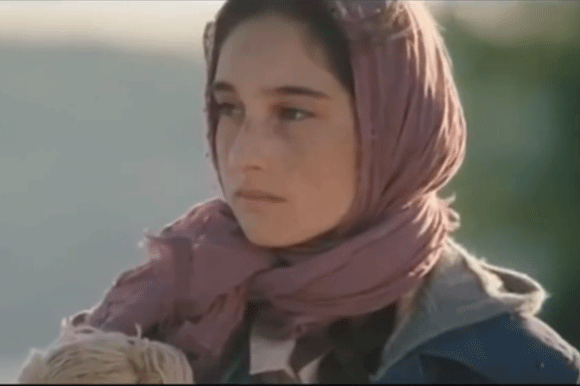 “We have signed this agreement between Creative Europe and Georgia, there are a few more official steps to be taken, but I am hoping that this programme will help us a lot because we have some good festivals, but as you know we have a very low budget and with this low budget we try to do everything,” Janelidze told FNE in February 2014.
“We have signed this agreement between Creative Europe and Georgia, there are a few more official steps to be taken, but I am hoping that this programme will help us a lot because we have some good festivals, but as you know we have a very low budget and with this low budget we try to do everything,” Janelidze told FNE in February 2014.
The Regional Film Fund of Adjara, on the Black Sea coast, launched in 2012, is also expected to boost the film initiative. “Little by little, Georgia is returning to the film industry map on the financial side as well because we are member of Eurimages which gives us good opportunities for coproductions because it gives us the chance to work internationally as well,” Vladimer Katcharava, the Georgian producer of The President, told FNE. The President was the only international coproduction benefitting from the coproduction grants programme of the GNFC in 2014.
DISTRIBUTION
In 2014, 82 films were distributed in Georgia through November and 15 of them were Georgian films. The number of European productions in Georgian cinemas is scarce. The leading distributor in 2014 was the Russian company Inter Film.
EXHIBITION AND BOX OFFICE
Total admissions were 645,944 and box office was 5,435,290 GEL/ 2,323,287 EUR through November 2014.
There is only one chain of multiplexes, the privately owned Rustaveli/Amirani Movie Theaters consisting of Cinema Amirani LTD (three screening halls, 648 seats) and Cinema Rustaveli LTD (five screening halls, 858 seats) in Tbilisi, and also Cinema Apollo LTD (one screening hall, 154 seats) in Batumi.
The company also runs the divisions Film Distribution LTD and Light Bank LTD, dealing with production.
The same movies are featured in all theatres, but each of them has a specific target audience. Cinema Amirani is more oriented toward art-house moviegoers, while the focus of Cinema Rustaveli is more for the young audience, David Mirtskhulava, Executive Manager of Distribution at Rustaveli/Amirani Movie Theatres told FNE in June 2014.
“Art-house production is approximately 15%. Unfortunately, at present the company is not able to use push art-house films as the number of screening halls is insufficient. Except for one hall, all are digitalized”, Mirtskhulava told FNE
The multiplex audience has been growing. From 2012 to 2013 there was a 32% increase in the number of moviegoers, and a similar increase was expected for 2014. According to Mirtskhulava, 30% of distribution comes from Ukraine and 30% is from Russia. Questioned by FNE in February 2014 about her first year as head of GNFC, Janelidze said that most important was “to start bringing cinema to the audience”.
”When the Soviet Union collapsed, we lost our cinema theatres. In the Soviet Union there were 120 theatres, and now we have only 12 screens in the whole country. Four cinema theatres and 12 screens! In these 20 years, people lost the habit of going to the cinema. We also have a new programme to bring good films to schools.“
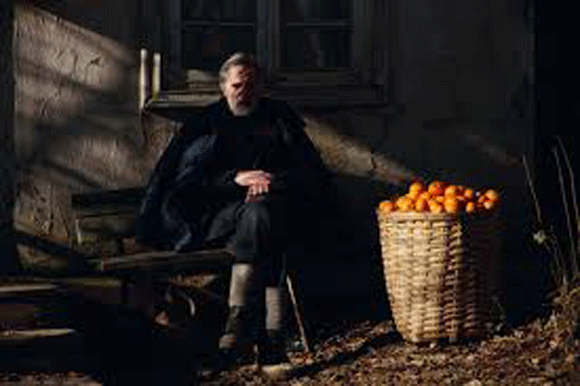 Mr. Nanny/Mr. Dzidza (produced by the TV channels Comedy arkhi and Comedy Group) and Giorgi Liphonava‘s Chemi colis dacalebi (Formula Creative) were the domestic box office hits in 2014. They even lead the Top 10 in 2014: Mr. Nanny/Mr. Dzidza, Rio 2, Chemi colis dacalebi, Noah, 300: Rise of an Empire, The Amazing Spider-Man 2, 47 Ronin, Transformers: Age of Extinction, Maleficent, The Other Woman, Dracula Untold.
Mr. Nanny/Mr. Dzidza (produced by the TV channels Comedy arkhi and Comedy Group) and Giorgi Liphonava‘s Chemi colis dacalebi (Formula Creative) were the domestic box office hits in 2014. They even lead the Top 10 in 2014: Mr. Nanny/Mr. Dzidza, Rio 2, Chemi colis dacalebi, Noah, 300: Rise of an Empire, The Amazing Spider-Man 2, 47 Ronin, Transformers: Age of Extinction, Maleficent, The Other Woman, Dracula Untold.
Zaza Urushadze’s Estonian/Georgian coproduction Tangerines was nominated at the Golden Globes in 2104. Another highlight of the year was the largest-ever retrospective of Georgian cinema in the USA, Discovering Georgian Cinema, Parts I and II, encompassing the history of Georgian film production from 1907 to 2014, which took place at MoMa from 23 September to 21 December 2014.
FILM INSTITUTIONS
The Georgian National Film Centre handles cinema strategy and allots the state funding. GNFC gave out 1,228,540 EUR in 2010, 706,905 EUR in 2011 and 1,047,800 EUR in 2012. Funding increased to 1,297,210 EUR in 2013.
Nana Janelidze was appointed to run the Georgian National Film Center in March 2013.
The autonomous region of Adjara, which started supporting film production in 2012, allotted 36,360 EUR in 2013.
TV
The Public Broadcasting Company– First Channel and the private channels Broadcasting Company Rustavi 2, and TV Imedi produce TV series. Public Broadcasting – First Channel also produces documentaries. TV channels do not fund independent film production as a rule, but it depends on the individual case, sources from GNFC told FNE.
Contact:
Georgia National Film Centre
4 ZviadGamsakhurdia Named Right Bank
Tbilisi 0105, Georgia
Phone: (+995 322) 2 999 200
Fax: (+995 322) 2 999 102
www.gnfc.ge
This email address is being protected from spambots. You need JavaScript enabled to view it.
Report by: Iulia Blaga
Source: Georgian National Film Centre

